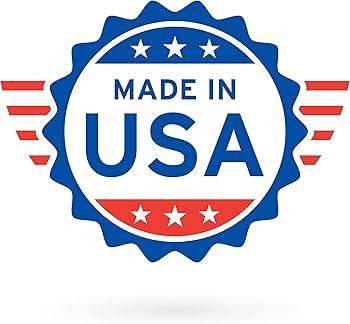The Federal Trade Commission (FTC) has long set rigorous guidelines to ensure transparency and honesty in product labeling, particularly with the “Made in USA” claim. As consumer demand for domestically manufactured goods grows, businesses face increased scrutiny to comply with these standards. Understanding the FTC’s criteria for “Made in USA” labeling is crucial for manufacturers, retailers, and marketers aiming to maintain credibility and avoid legal pitfalls. This article breaks down the key aspects of the FTC’s Made in USA standard, highlighting compliance requirements and recent enforcement trends to help companies navigate this complex regulatory landscape.
Understanding the Federal Trade Commission Made in USA Standard and Its Scope
The Federal Trade Commission (FTC) enforces the Made in USA standard to ensure that products advertised with this claim meet rigorous criteria. According to FTC guidelines, a product must be “all or virtually all” made in the United States to bear this label. This means that all significant parts, processing, and labor that go into the product must be of U.S. origin. The FTC scrutinizes these claims to protect consumers from misleading information and to preserve fair competition in the marketplace.
The scope of the Made in USA standard is broadly applicable across multiple industries, including manufacturing, textiles, and electronics. Businesses must document and substantiate their product origin thoroughly to avoid penalties. Key aspects considered in the evaluation include:
- Component sourcing: The origin of parts that make up the final product.
- Assembly location: Where the product was substantially assembled or transformed.
- Final processing: The last significant manufacturing step that imparts essential character.
Key Requirements for Businesses to Ensure Accurate Made in USA Claims
Companies making Made in USA claims must ensure their products are “all or virtually all” made within the United States. This means that all significant parts, processing, and labor must originate domestically. The Federal Trade Commission (FTC) mandates businesses to substantiate these claims with concrete evidence, including detailed records of sourcing, manufacturing, and assembly locations. Failure to comply can result in legal action, consumer distrust, and damaged brand reputation.
To rigorously meet these standards, businesses should implement comprehensive verification processes. Key steps include:
- Documenting each stage of production from component sourcing to final assembly.
- Regular audits to ensure ongoing compliance with domestic manufacturing guidelines.
- Transparent marketing that avoids ambiguous language potentially misleading consumers.
| Requirement | Detail | Compliance Tip |
|---|---|---|
| Component Origin | All or virtually all parts sourced domestically | Maintain supplier affidavits |
| Manufacturing Process | Substantial transformation in the USA | Track assembly locations carefully |
| Advertising Claims | Truthful, non-misleading statements | Review marketing materials regularly |
Common Challenges and How to Avoid Deceptive Practices in Labeling
One of the most frequent obstacles companies face when adhering to the Made in USA standard involves the complexity of supply chains. Many products are assembled from components sourced globally, making it challenging to determine the precise origin of each part. To steer clear of deceptive labeling, businesses must conduct thorough due diligence on their suppliers and maintain transparent documentation proving that “all or virtually all” manufacturing occurred domestically. Failure to do so can lead to misleading claims that violate Federal Trade Commission (FTC) guidelines, resulting in legal repercussions and loss of consumer trust.
Another critical pitfall is the misuse of ambiguous terms on packaging, which can confuse consumers or imply a false origin. Marketers must avoid using phrases like “Made in USA parts” or vague statements without proper context. To assist manufacturers in maintaining compliance, the FTC emphasizes these key practices:
- Verify that products meet the stringent criteria before labeling.
- Keep detailed records of production processes and component sourcing.
- Educate sales and marketing teams on the legal standards for claims.
- Regularly audit labels and advertising materials to ensure accuracy.
| Challenge | Preventative Action |
|---|---|
| Complex Supply Chains | Comprehensive Supplier Vetting |
| Ambiguous Labeling Terms | Clear, Verified Language Usage |
| Incomplete Documentation | Rigorous Record-Keeping |
| Lack of Staff Training | Ongoing Compliance Education |
Practical Steps for Maintaining Compliance and Building Consumer Trust
Ensuring adherence to the Made in USA standard requires businesses to adopt clear and consistent practices that align with Federal Trade Commission (FTC) guidelines. Start by conducting thorough supply chain audits to verify where each component originates and where the final assembly takes place. Transparency in labeling is crucial; all marketing materials and product packaging must accurately represent the proportion of domestic manufacturing. Employing rigorous documentation protocols not only supports compliance but also prepares companies for potential FTC inquiries or challenges, reinforcing credibility in the marketplace.
Building consumer trust goes beyond mere compliance. Companies should emphasize their commitment to authentic American manufacturing through storytelling and open communication. Utilize customer-facing platforms to share insights about sourcing and production processes, which can foster a deeper connection and confidence among buyers. Consider the following strategic actions:
- Implement regular staff training on FTC regulations and labeling accuracy
- Engage third-party verification services for impartial confirmation of claims
- Leverage social media to highlight behind-the-scenes aspects of product creation
| Compliance Step | Key Benefit |
|---|---|
| Supply chain auditing | Ensures genuine origin claims |
| Accurate labeling | Prevents legal risks, misrepresentation |
| Transparent marketing | Enhances consumer confidence |
The Way Forward
In summary, adhering to the Federal Trade Commission’s “Made in USA” standard is essential for businesses seeking to build trust and avoid costly penalties. As consumer demand for transparency grows, strict compliance ensures that claims of domestic manufacturing are both accurate and verifiable. Companies must stay informed about the FTC’s guidelines and maintain rigorous documentation to uphold the integrity of their products in the marketplace. With regulatory scrutiny intensifying, understanding and following these standards is not just a legal obligation but a competitive advantage in today’s consumer-driven economy.




